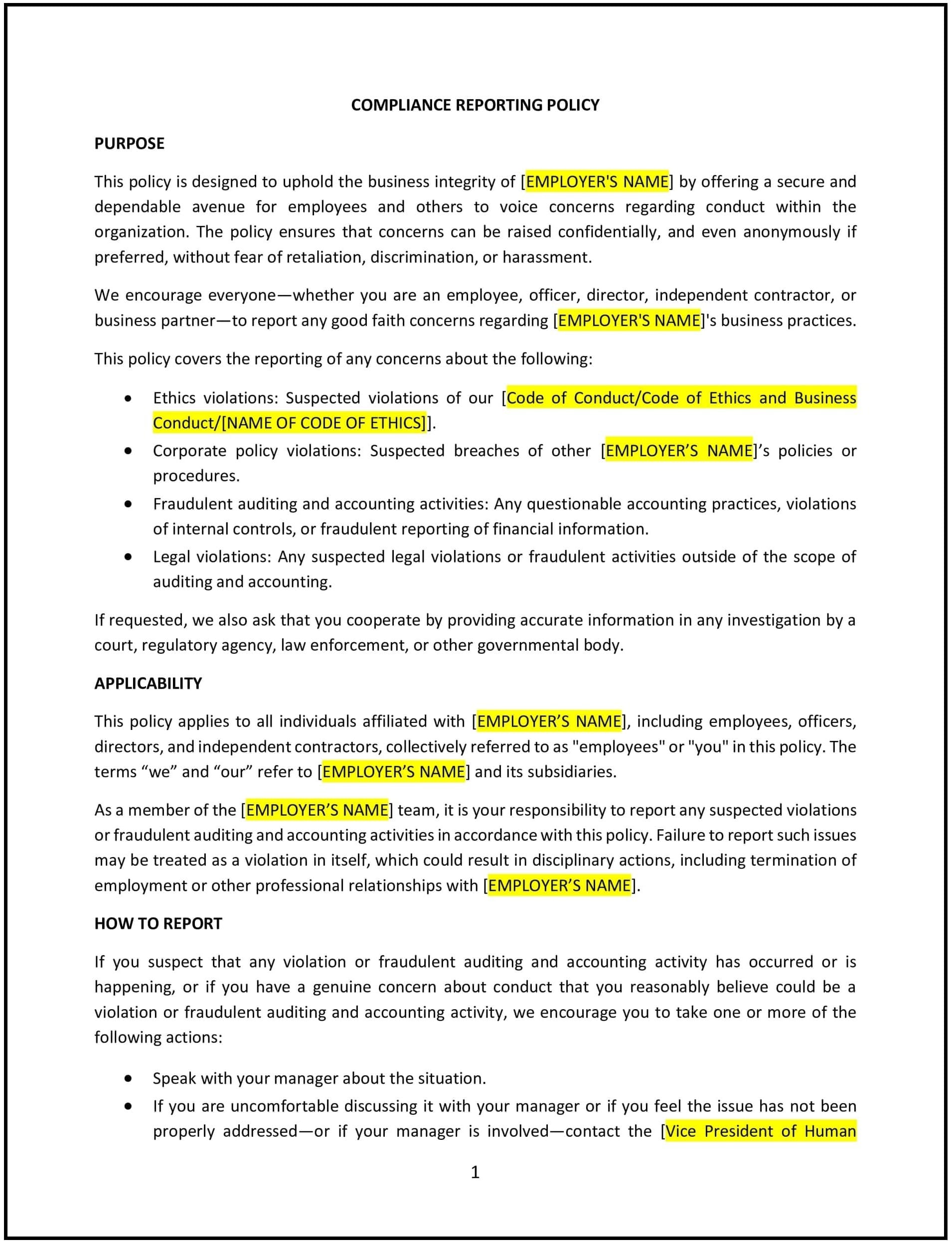Compliance reporting policy (Maryland): Free template
Got contracts to review? While you're here for policies, let Cobrief make contract review effortless—start your free review now.

Customize this template for free
Compliance reporting policy (Maryland)
This compliance reporting policy is designed to help Maryland businesses establish a structured process for employees to report potential violations of laws, regulations, or company policies. It fosters transparency and accountability, ensuring that businesses can promptly identify and address compliance issues.
By implementing this policy, Maryland businesses can promote ethical practices, enhance trust within the workplace, and mitigate risks associated with non-compliance.
How to use this compliance reporting policy (Maryland)
- Define reportable issues: Specify the types of concerns employees should report, such as legal violations, unethical practices, or breaches of company policies.
- Establish reporting channels: Provide clear instructions on how employees can report issues, including anonymous options like hotlines or secure online forms.
- Include confidentiality measures: Emphasize the business’s commitment to protecting the identity of individuals who report compliance concerns.
- Prohibit retaliation: State explicitly that retaliation against employees who report concerns is not tolerated, in line with Maryland and federal laws.
- Outline investigative procedures: Detail how reports will be reviewed, including timelines, confidentiality protocols, and steps for resolving issues.
- Designate responsible roles: Identify personnel or teams responsible for receiving, investigating, and addressing compliance reports.
- Require employee training: Ensure employees are aware of their reporting obligations and understand how to use the provided channels.
Benefits of using this compliance reporting policy (Maryland)
Implementing this policy offers Maryland businesses several advantages:
- Enhances accountability: Establishes a clear framework for addressing potential violations.
- Encourages transparency: Promotes a culture where employees feel comfortable reporting concerns.
- Reduces legal risk: Helps businesses identify and resolve issues before they escalate.
- Builds trust: Demonstrates a commitment to ethical practices and employee protections.
- Aligns with business values: Reinforces the importance of compliance and integrity within the workplace.
Tips for using this compliance reporting policy (Maryland)
- Communicate clearly: Share the policy with employees during onboarding and make it accessible through handbooks or the company intranet.
- Provide regular training: Train employees and managers on identifying and reporting compliance concerns.
- Monitor effectiveness: Periodically evaluate the reporting process to identify potential improvements or barriers.
- Document thoroughly: Maintain detailed records of reports, investigations, and outcomes for accountability and future reference.
- Stay informed: Regularly update the policy to reflect changes in Maryland laws or compliance requirements.